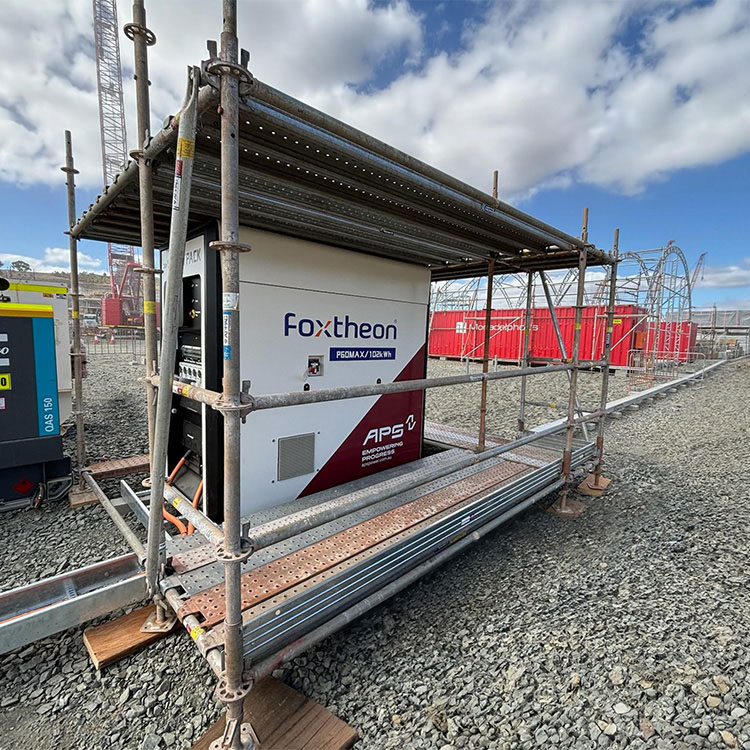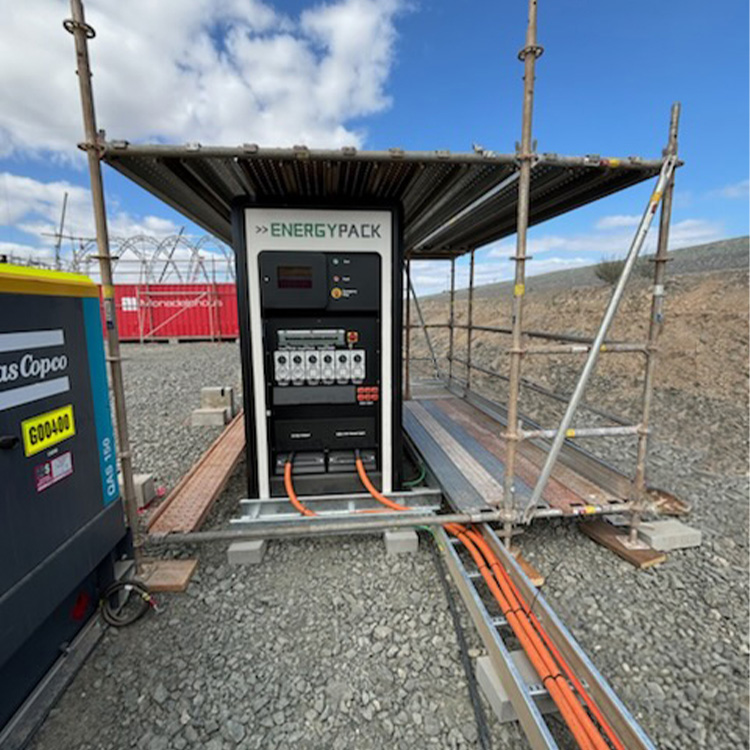
APS Power provided a 102kWh battery as the primary power source, with the generator supplying additional power as needed. This trial demonstrated the battery system’s potential to reduce generator usage and deliver environmental benefits. As energy needs increased, the battery began cycling more frequently, highlighting that a larger capacity may be more suitable for sustained high-demand operations.
1. Optimised Efficiency through Proper Sizing: Generator run hours were reduced, providing both fuel savings and emissions reductions. A larger capacity BESS would have further supported this efficiency as demands grew.
2. Financial and Environmental Impact: The project delivered an estimated $54,000 in annual fuel savings, with the potential for even greater fuel efficiency and savings with a larger BESS unit.
3. Operational Stability: The BESS maintained stability throughout, with zero power outages, underscoring the solution’s reliability. Optimised sizing could further enhance longevity and reduce cycling.
4. Room for Scalability: Future-proofing through appropriate sizing supports increased demand while minimising generator dependency. This project demonstrated how a flexible approach can adapt to evolving needs.
5. Optimal Power Demand Management: The 102kWh BESS performs best with peak demands of 20-30kWh. If demand consistently exceeds this range, a larger BESS is recommended to reduce cycling times and reliance on generators, enhancing overall system stability and efficiency.

This collaboration with Monadelphous showcases the importance of matching battery size with current and anticipated site demands. While the P60 Max BESS achieved notable fuel and emissions savings, an optimised capacity would further enhance these benefits, especially as energy needs evolve. Companies can ensure efficient, sustainable, and scalable power solutions by aligning BESS capacity with operational demands.
APS offers cutting-edge technology and exceptional quality to elevate your projects. Enhance your productivity and achieve exceptional results. Choose the perfect power partnership and elevate your projects to new heights APS. Get in touch with us today on (08) 9455 2111.